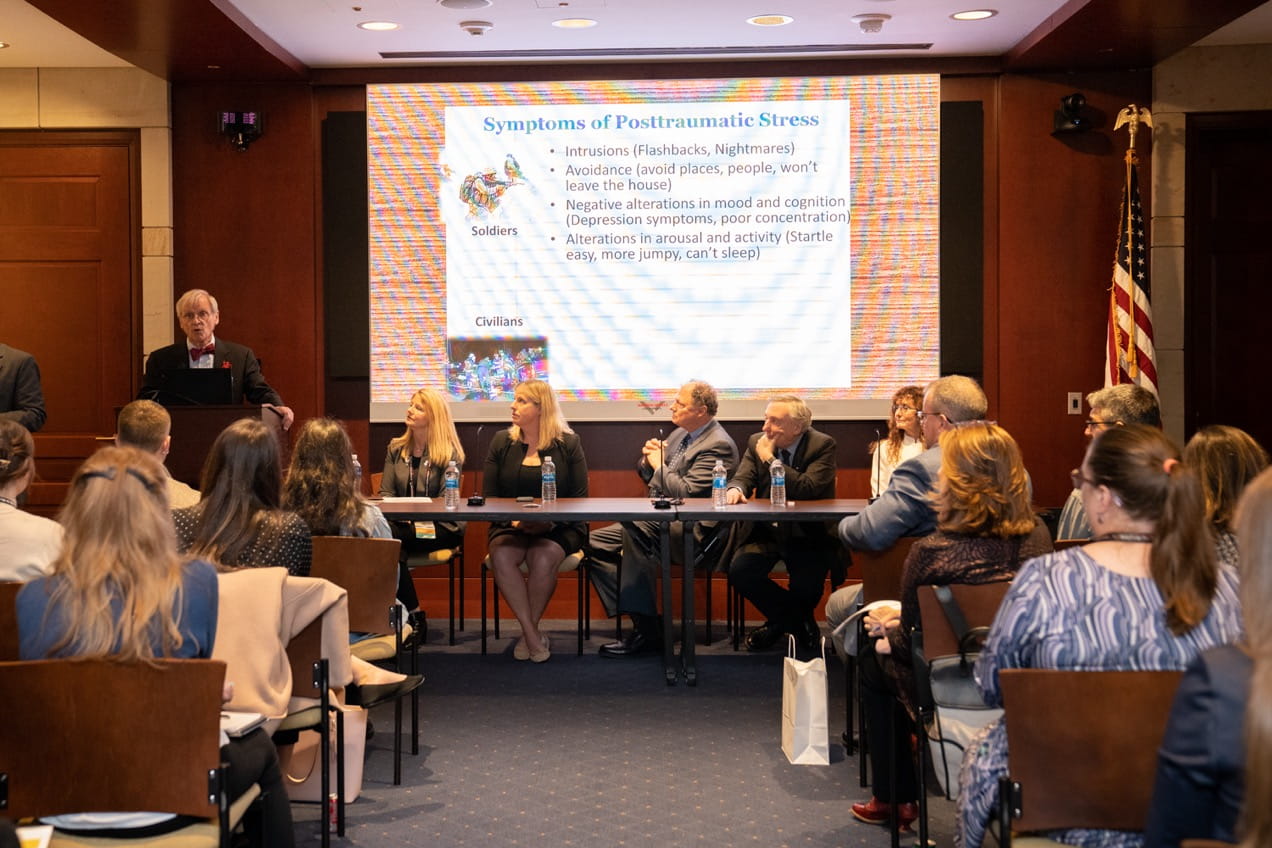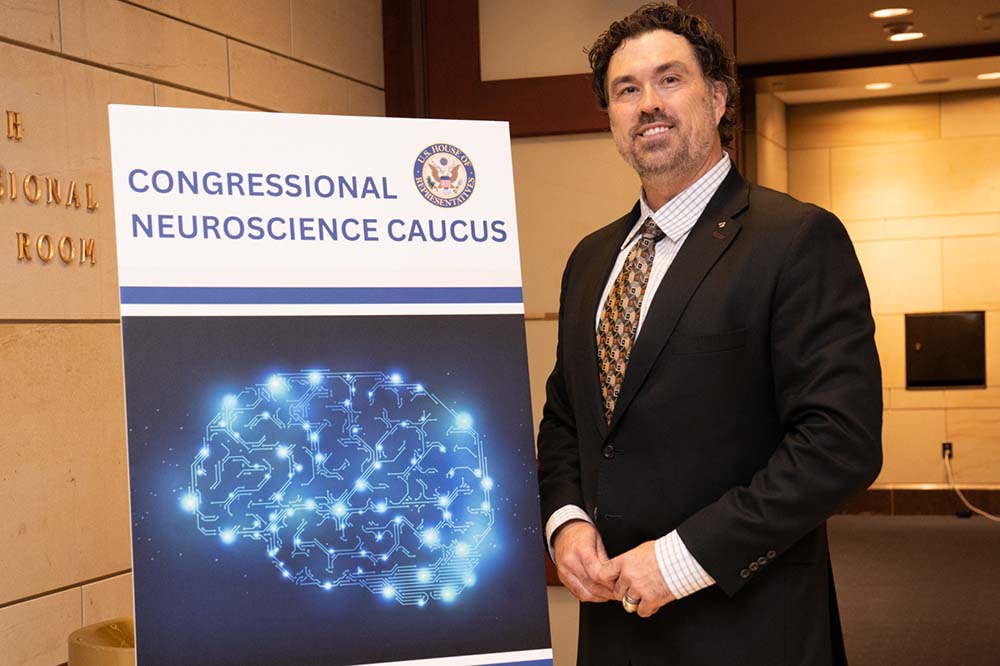Most professionals enjoy the opportunity to get out of the office and spend time with colleagues at conferences each year. Lori L. McMahon, Ph.D., is no exception, but her experience as part of the Society for Neuroscience's (SfN) annual meeting last month was a bit different.
Approximately 25,000 neuroscience researchers and clinicians convened in Washington, D.C., from Nov. 11 through 15. Neuroscience 2023 featured more than 12,000 presentations, covering topics such as genetic therapies, artificial neural networks, compulsive behavior, empathy, hearing and substance abuse disorders.

McMahon, a career researcher, professor of neuroscience and chairperson of the SfN Government and Public Affairs Committee, was asked to moderate a congressional briefing hosted by SFN and the American Brain Coalition, in cooperation with the Congressional Neuroscience Caucus (CNC).
Titled "The Invisible Threat: Understanding, Recognizing, and Treating PTSD," the briefing featured an expert panel of speakers discussing the latest fundamental research and discoveries into post-traumatic stress disorder (PTSD), how best to recognize and treat this neuropsychiatric disorder moving forward and how Congress can play a role in advancing new discoveries and therapies for PTSD.
The briefing was supported by CNC co-chairs Congressman Earl Blumenauer (D-OR) and Congressman Morgan Luttrell (R-TX). Luttrell, a veteran of the U.S. Navy, completed an M.S. in applied cognition neuroscience after medically retiring from the military following severe traumatic brain and spinal cord injuries he sustained in a helicopter crash in 2009.

"If we can do great things as scientists and clinicians, we can do great things for people in the U.S. and around the world. We cannot let off the gas," said Luttrell.
According to the National Center for PTSD, about 6 out of every 100 people - or 6% of the U.S. population - will have PTSD at some point in their lives, but most people who experience a traumatic event will not develop PTSD. Traumatic events can include sexual and physical assault, accidents, combat, witnessing death or injury and experiencing a natural disaster or terrorism. Veterans are more likely to have PTSD than civilians.
Advances in PTSD research have helped experts to understand more fully what parts of the brain are most directly affected. MUSC is a leader in trauma research. The National Crime Victims Research and Treatment Center, led by Dean Kilpatrick, Ph.D., and the Brain Stimulation Lab, led by Mark George, M.D., have both been leading the way nationally in research, in the response to trauma, in addition to the prevention and treatment of PTSD. None of it would be possible without proper research funding.
"It is absolutely critical to educate our decision-makers in Congress about the importance of funding research," said McMahon. "Without research and discovery, we will never improve how we take care of patients."






